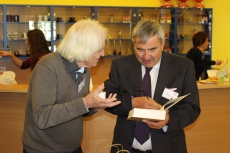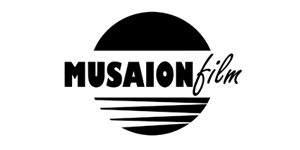
The J. A. Comenius Museum, Uherský Brod
and the Institute of Philosophy of the Czech Academy of Sciences,
in cooperation with the Comenius Union
will host
THE 31ST INTERNATIONAL COMENIOLOGICAL COLLOQUIUM
Migration, emigration, exile and cultural transfers
on 10–11 October 2018
| PROGRAM | ACCOMODATION | FOR THE AUTHORS | DOWNLOADS | CONTACT |



PHOTO DOCUMENTATION OF THE EVENT
PROGRAM OF THE 31ST INTERNATIONAL COMENIOLOGICAL COLLOQUIUM
Length of individual papers: 25 minutes + 5 minutes of discussion
Colloquium languages: Czech, Slovak, English, German
WEDNESDAY 10. 10. 2018
Museum, Column Hall
8.00–8.30 Registration of the participants
8.30–8.50 Opening
Youth Centre
9.00–9.25 Thomas Richter: The Selectiveness of Cultural Transfer and the Problematic Natures of the Term “Migration” in Early Modern Europe
9.25–9.40 Martin Steiner: On the Terminology of Migration in the Latin Works by Comenius
9.40–10.05 Sándor Enghy: A Biblical Perspective on Migration: One History, One Solution – With Regard to Comenius’ Understanding of the Bible
10.05–10.20 discussion
10.20–10.45 Petr Melmuk: The Influence of Exile and (E)migration on the Comenius’ Land in the 16th–18th Centuries
10.45–11.10 Karel Rýdl: Comenius – Exile or Emigrant?
11.10–11.20 discussion
11.20–12.50 lunch
12.50–13.15 Kateřina Šolcová: Political Theory at the Reformed Herborn Academy and Its Reflection in the Work of J. A. Comenius
13.15–13.40 Andreas Lischewski: Der Regenmacher und das perpetuum mobile. Die Aneignung der Elias-Gestalt im niederländischen Exil
13.40–13.50 discussion
13.50–14.15 Martin Holý: Between Wittenberg and Prague. Leucorea Graduates as Professors at the Prague Utraquist University in the 16th and Early 17th Century
14.15–14.40 Vladimír Urbánek: The Transfer of Knowledge and the Rhetoric of Exile: post-White Mouintain Exiles and Their Self-presentation in the Documents of the Hartlib Circle
14.40–14.50 discussion
14.50–15.00 coffee break
15.00–15.25 Andrzej Borkowski: Polish Translations of “The Labyrinth of the World and Paradise of the Heart” in the 17th and the Early of the 20th Centuries: Jan Petrozelin (1695) and Jan Pindór (1914)
15.25–15.50 Ludmila Mnich: Comenius as an Emigrant: Russian and Ukrainian Perception
15.50–16.00 discussion
16.00–16.25 Rostislav Rajchl: Coordinated Cooperation of Astronomers in the 16th and 17th Centuries Based on the Measurment and Observation of the Cosmic Bodies While Forming Ideas about Space
16.25–16.50 Olga Chadaeva: Reception of Western Cosmological Models in the Seventeenth-Century Russia
16.50–17.00 discussion
17.00–17.20 Manfred Richter, Jiří Beneš: In Commemoration of Werner Korthaase
18.45–19.30 Exhibition Invisible Bridge. Milada Blekastad 1917–2003 with a guided tour by Vladimír Urbánek
19.30–20.00 Olšava Folk Ensemble
20.00 Wine Tasting
ČTVRTEK 11. 10. 2018
Youth Centre
8.45–9.10 Jan Kilián: Migration and Emigration in the Cities of the Ore Mountains Region in the First Half of the 17th Century
9.10–9.35 Jana Hubková: Flier Journalism Concerning the Beginnings of Reformation at the Salhausen Dominion in the Northern Bohemia
9.35–9.45 discussion
9.45–10.10 Kamila Szymańska: Leszno / Lissa im 17. Jahrhundert als gelungenes religiöses, kulturelles und gesellschaftliches “Experiment”
10.10–10.35 Martin Hoferka: Chalice of the Unity of the Brethren from 1639. Physical Proof of the post-White Mountain Emigration in Skalica
10.35–11.00 Jan Saheb: Migration and Confession as Determining Factors in the Personal Career of the Early Modern Period Nobleman. From Moravia through Europe to Upper Silesia – Story of Jan Němčický from Němčice
11.00–11.15 discussion
11.15–12.45 lunch
12.45–13.10 Roman Mnich: Comenius versus Jews and Judaizers
13.10–13.35 Jan Herůfek: Jewish-christian Dialogue in the 15th Century: Giovanni Pico and Yohanan Alemanno
13.35–13.45 discussion
13.45–13.55 coffee break
13.55–14.20 Bernhard Stalla: Die Bildungsinitiativen von Jan Amos Komenský im Exil
14.20–14.45 Hiroshi Matsuoka: Finding Myself in Comenius
14.45–15.10 Seok-Joo Kim: Comenius’s Educational and Theological Thought Realized in the Development Process of the Republic of Korea and Application in Modern Society
15.10–15.25 discussion
15.25–15.35 Final Word
Every participant shall arrange his own accomodation.
Below, you can find hotels and guest houses which are in close proximity of the museum (5 minutes walk).
the closest accomodation:
In Uherský Brod or near the city, there are several other accomodation facilities. Their list can be found here:
• hotels
• hostel
The presented papers will be published in the journal Studia Comeniana et historica (issue No. 101–102/2019).
The final text must be submitted by February 28, 2019 and it must follow the editing principles for publication in SCetH.
Recommended extent of the papers is 20 standard pages, please consult greater extent or later deadline with the editorial staff of the journal.
Call for papers ENG
OFFICIAL PROGRAMME OF THE COLLOQUIUM
Should you have any questions, please consult:
Lenka Pospíšilová
pospisilova@mjakub.cz
phone: 572 63 22 88
mobile phone: +420 605 320 540



